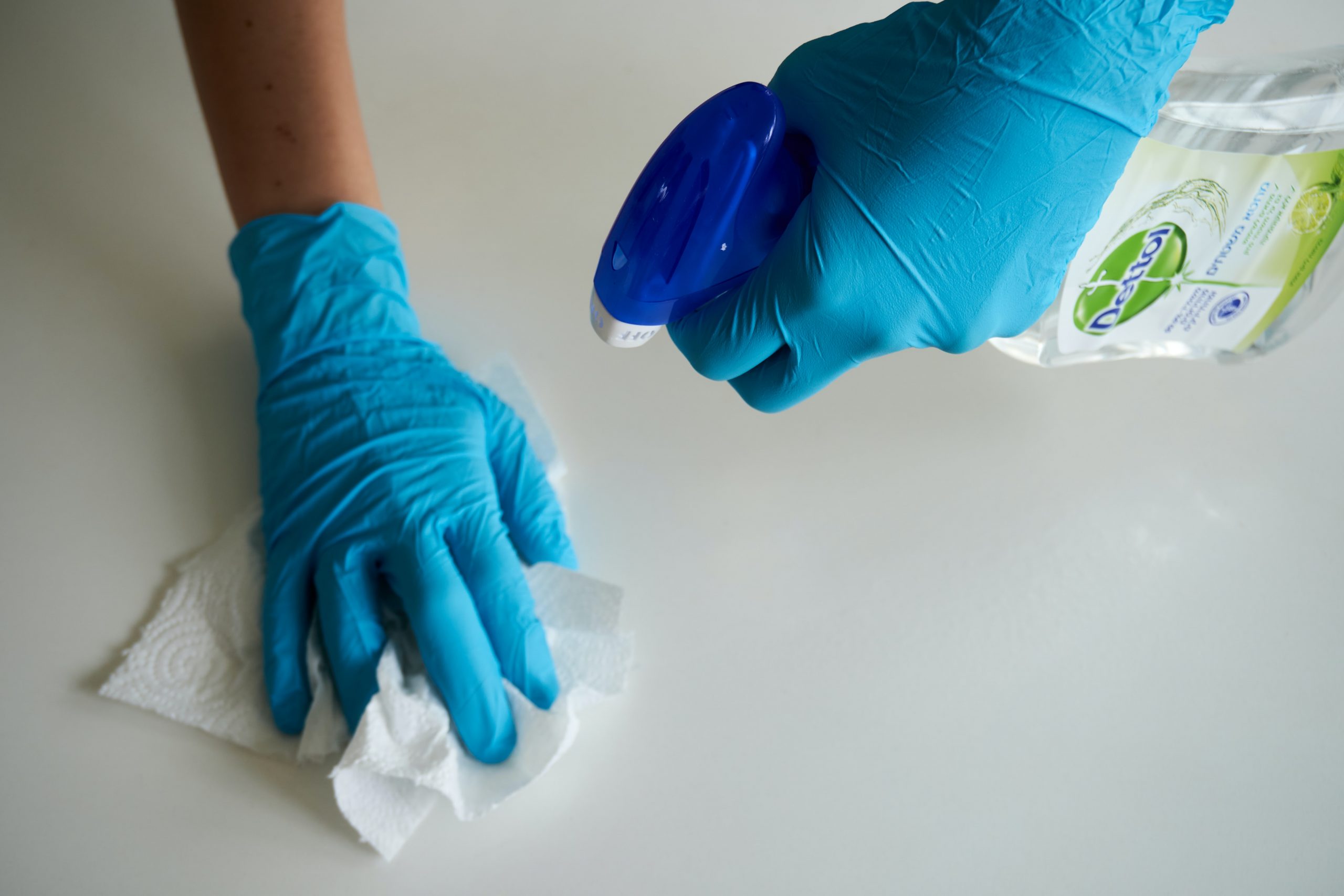Research* reveals drastic lessons need to be learned in cleaning processes across the education sector. Using state-of-the-art ATP testing, Nviro took over 1,200 swabs across schools in the UK, enabling them to identify areas which are commonly forgotten in cleaning and can develop into bacteria and virus hotspots.
Some of the most shocking results showed 99% more bacteria on the staff kitchen tap compared with the visitor toilet door in one school and in another school, 95% more bacteria on staff room coffee machine compared with the boys’ toilet.
ATP testing measures the amount of organic material on a surface, allowing the user to identify areas that have higher levels of organic matter, to strategically develop their cleaning regime to combat these hot spots. ATP tests are carried out before, and after cleaning, to ensure environments are cleaned efficiently and according with their usage.
After identifying the high-risk areas, an electrostatic sprayer can be used to apply a complete cover of disinfectant to all surfaces, combating invisible bacteria in under a minute, and killing Coronavirus-like germs. For further protection a protective bio-shield layer can be applied stopping envelope style viruses, such as COVID, from being allowed to survive on any surface, ensuring that all areas of buildings are kept hygienic, protecting building users from harm.
The technology charges the chemical particles which result in the spray mist forming a wraparound effect that covers all surfaces, providing frontline workers with a targeted, fast and safer way of deploying chemicals. This strategic approach to cleaning allows for both a more time efficient and financially effective cleaning regime to be implemented.
Brian Warren, Managing Director at Nviro, said: “The impact of COVID-19 means we are all more aware of sanitising touchpoints, such as door handles. However, our research found that there are often high traffic areas that get forgotten and these are generally areas in schools or workplaces that the end user is expected to clean and maintain themselves, such as hot desks, telephones and kitchen equipment.
“Our research showed that staff areas typically held more bacteria compared with classrooms, and even toilets. Keeping staff-only areas safe and hygienic is essential, not only to keep staff safe, but to save money by reducing the number of temporary or supply teachers required due to staff sickness.”
Within their research, Nviro revealed factors that can aid the spread of viruses in the air, including temperature, humidity, carbon dioxide, and carbon monoxide. To combat the wide range of factors aiding the spread of viruses Nviro recommends air cleaning solutions that can both monitor and kill organic cells. Air filtration systems monitor all the factors which aid the spread of viruses allowing dangerous organic matter to be removed from the air, making these locations safe and hygienic.
Air sterilisation units can be implemented in areas where air filtration units would not be a practical solution. This process has been proven to offer highly effective targeted cleaning in washroom locations. By employing the use of ultra-violet lights, they breakdown organic cells and effectively kill them.
Brian Warren, Managing Director at Nviro, shares his top tips to avoid common cleaning mistakes
Never mix chemicals
Throughout the pandemic we have seen individuals bring their own cleaning products to supplement cleaning by their cleaning provider at work or in school. Mixing products can be extremely dangerous and cause a chemical reaction, particularly if you use bleach. Always check with your cleaning provider before introducing new chemicals or cleaning products to ensure they will not react with products used by your cleaners.
Avoid anti-bacterial wipes
Anti-bacterial wipes are not only expensive, but they contain high levels of plastic which are damaging for the environment. Single-use plastic pollution has been exacerbated by the COVID-19 pandemic with increased use of chemicals as well as single use masks. We would suggest paper based wipes that can be recycled and safer chemicals, or reusable washable microfibre cloths where facilities are available.
Check the kill log before choosing cleaning products
Cream cleaners, aerosol sprays and products which contain high levels of bleach, soap or alkaline can be dangerous to the health of the user if used over a long period of time.
Instead, use products that are health, environmentally and COSHH friendly. These regularly come with a kill log of three, making them highly effective at protecting classrooms, staffrooms and homes. You can check the kill log of your cleaning products by looking at the percentage of bacteria killed on the bottle. For example, 99.9%, shows a kill log of three.
Consider air filtration
Current Government guidelines suggest that whilst we are spending more time inside, we should be keeping the windows open to allow fresh air to flow throughout the building. Being able to provide effective ventilation and at the same time provide heating to all rooms is a challenge. By working with a partner in Air Quality, you can not only improve air quality by the means of purification systems, but also assess what areas of your building need attention through air monitoring systems. Through targeted purification you can achieve significantly improved air quality and save significant money on heating bills and external ventilation through opening windows is reduced. It has been proven that improved air quality not only reduces the risk of air-borne viruses and bacteria but also improves the environment to induce higher concentration levels and less drowsiness.







